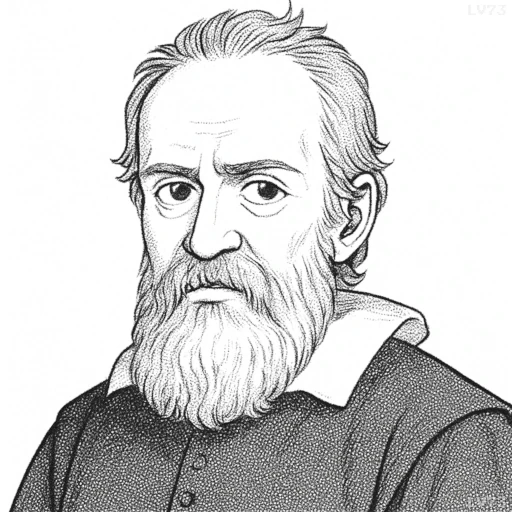“We must say that there are as many squares as there are numbers.”

- February 1564 – January 8, 1642
- From the Duchy of Florence (Italy)
- Physicist, astronomer, mathematician
table of contents
Quote
“We must say that there are as many squares as there are numbers.”
Explanation
In this statement, Galileo is reflecting on the concept of infinity and the relationship between numbers and their squares. He is asserting that for every number, there exists a corresponding square number—in other words, the set of squares is as large as the set of numbers themselves. This observation underscores the idea that the universe of numbers is not only vast but endless, with each number having an infinite number of related properties and connections. Galileo’s remark could be seen as a way to emphasize that mathematical concepts, such as squares, are not limited or separate from numbers but are an inherent part of the number system, expanding the possibilities of mathematical exploration.
This idea remains a fundamental concept in mathematics today, particularly in the study of sets and infinite structures. The notion that there are as many squares as there are numbers can be understood in the context of countable infinity, where both the set of natural numbers and the set of perfect squares are infinite and can be placed in a one-to-one correspondence with each other. It also highlights the idea of mathematical relationships, where certain operations—like squaring a number—generate new sets that are as large and complex as the set from which they originated.
In a broader sense, Galileo’s words can also be interpreted as a reflection on the unlimited nature of mathematical inquiry. Just as numbers continue infinitely, so too do the possibilities for discovery and understanding within mathematics. Mathematicians today continue to explore the properties of numbers and their relationships to one another, uncovering patterns and relationships that Galileo himself may have only begun to explore. This idea can be a reminder that the world of numbers and mathematics is an ever-expanding field, inviting both scientific discovery and philosophical reflection on the infinite nature of knowledge itself.
Would you like to share your impressions or related stories about this quote in the comments section?



